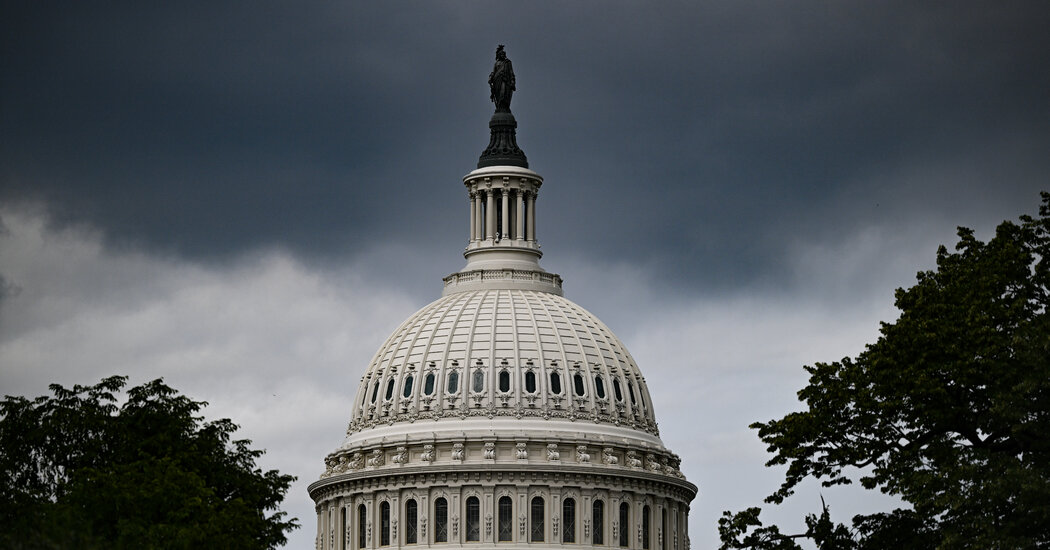The national gross debt topped $32 trillion for the first time on Friday, highlighting the country’s troubling fiscal stance as Washington gears up for a new scramble over government spending.
A Treasury Department report noted the milestone weeks after Congress agreed to suspend the country’s legal debt limit, ending a months-long stalemate.
The $32 trillion milestone came nine years earlier than prepandemic forecasts predicted, due to the trillions of dollars in emergency spending to deal with the impact of Covid-19, along with sluggish economic growth.
Republicans and Democrats have expressed concerns about the national debt, but neither party has shown a willingness to address the biggest drivers, such as Social Security and Medicare spending.
The recent bipartisan agreement suspending the debt limit for two years cuts federal spending by $1.5 trillion over ten years, according to the Congressional Budget Office. 2025. But the debt is on track to exceed $50 trillion by the end of the decade, even after factoring in recent spending cuts.
Mark Zandi, the chief economist of Moody’s Analytics, said during the standoff in May that the cuts proposed by lawmakers failed to address the cost of social safety net programs. While avoiding default would prevent an immediate crisis, he said, mounting debt is a persistent problem that needs to be addressed.
“The country’s massive long-term fiscal challenges remain,” said Mr. Zandi.
This week, the House Appropriations Committee began considering the next spending bills and, to appease the ultra-conservative wing of the Republican majority, signaled that it would fund federal agencies at a lower level than President Biden and Chairman Kevin McCarthy agreed.
Failing to pass and reconcile the House and Senate bills before Oct. 1 could lead to a shutdown of the government. And if the individual accounts are not approved at the end of the year, a 1 percent cut is automatically made.
At the same time, House Republicans began considering another round of tax cuts this week. The bill would expand standard deductions for individual taxpayers and expand a number of business tax breaks designed to encourage investment while curbing energy tax credits. The Committee for a Responsible Federal Budget, which advocates lower spending levels, estimates that the proposed legislation would cost $80 billion over a decade or $1.1 trillion if the measures were made permanent.
Some have called on Congress to form a bipartisan fiscal committee to address the long-term factors of the national debt.
“As we race past $32 trillion with no end in sight, it is time to address the fundamental drivers of our debt, which are mandatory spending growth and the lack of sufficient revenue to fund it,” said Michael A. Peterson, chief executive officer of the Peter G. Peterson Foundation, which promotes deficit reduction.
The Peterson Foundation expressed concern over projections showing the United States will add $127 trillion in debt over the next 30 years and that interest costs will consume nearly 40 percent of all federal revenue by 2053.
Treasury Secretary Janet L. Yellen defended the Biden administration’s handling of the country’s finances during a House Financial Services Committee hearing this week, noting that the White House had released a budget this year to cover the deficit. by $3 trillion. She also told the panel that interest rates are likely to fall in the medium term, making the debt burden more manageable.
The Treasury Secretary suggested that tax policies promoted by Republicans would worsen the fiscal situation.
“They would benefit wealthy individuals and businesses and do nothing for working families,” Ms Yellen said. “It hasn’t been paid and it would compound the debt.”

